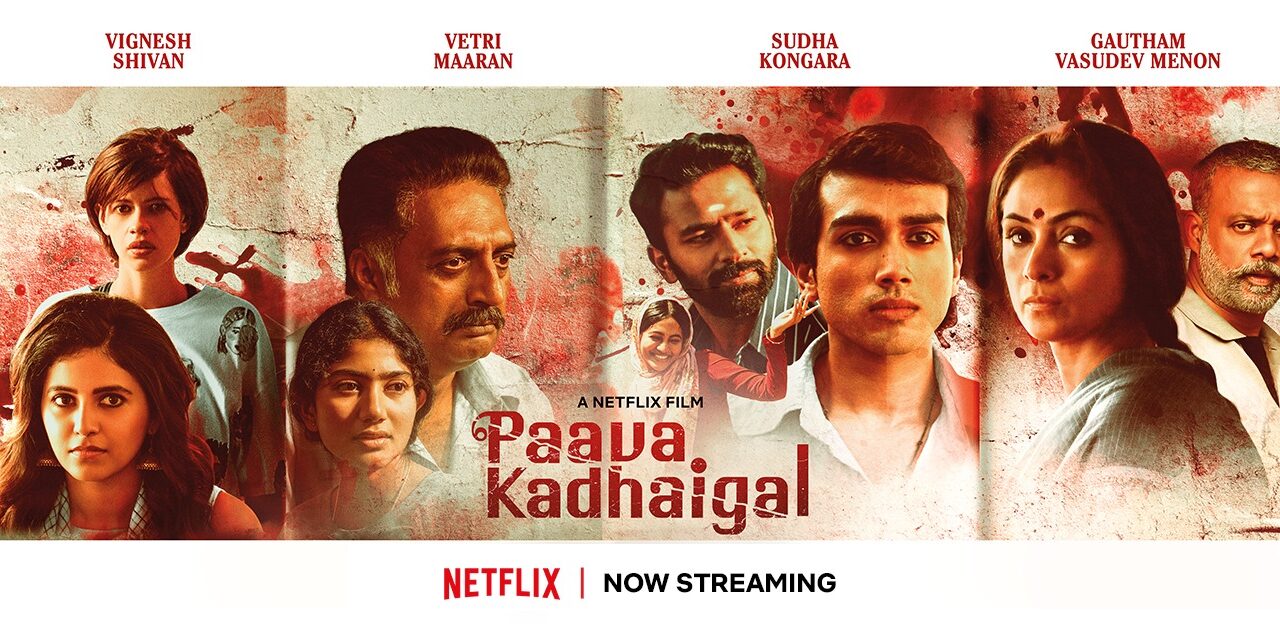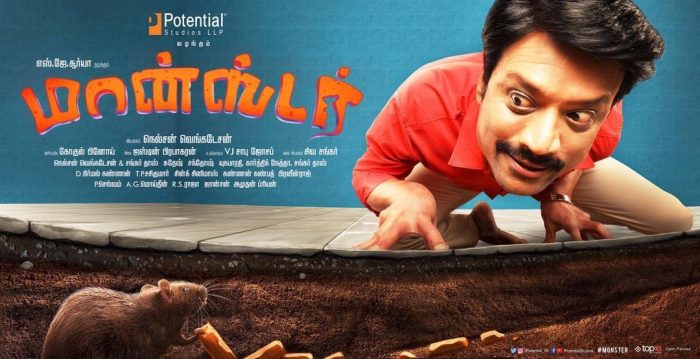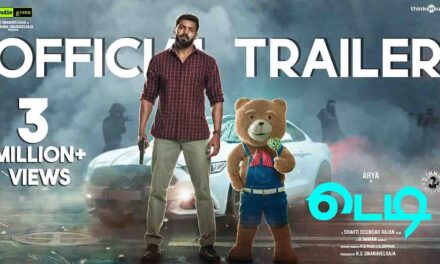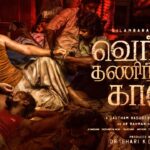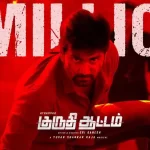Directors: Sudha Kongara, Vignesh Shivn, Gautham Vasudev Menon, Vetrimaaran
Cast: Shanthnu Bhagyaraj, Kalidas Jayaram, Bhavani Sre, Anjali, Kalki Koechlin, Jaffer Sadiq, Padam Kumar, Tony Sebastian, Simran, Gautham Menon, Sai Pallavi, Prakash Raj
Language: Tamil
For film buffs, it was as if Christmas came early when Netflix announced the release of Paava Kadhaigal, an anthological web series with ace directors Sudha Kongara, Vignesh Shivn, Gautham Menon and Vetrimaaran helming one episode each. The individual stories are seemingly unconnected, though we see a cheeky reference to Vetrimaaran’s story in Gautham’s film, suggesting these two unfold in the same universe (or should we say cineverse).
What does bring these stories together though is a common underlying theme: honour killing. Now this is a subject that’s not uncommon in the Indian filmscape. Article 15, NH10, Easan, Kaadhal..these are films that instantly spring to my mind when I think about this (though I’m sure there are many, many more).
What is interesting in Paava Kadhaigal, apart from its OTT/anthological framework of course, is the line up of directors chosen to examine this dark subject. You could say Vetrimaaran was an intuitive choice given his oeuvre, but Sudha Kongara, Vignesh Shivn and Gautham aren’t exactly the directors you would normally associate with such a dense premise.
Vetrimaaran mentioned in a recent interview about directors having to occasionally come out of their comfort zones and how this was the line of thought that led to the team embracing this subject. With this context, I was really looking forward to watching all these films and analyzing them on their specific individual stylistic merits.
Thangam (directed by Sudha Kongara):
The series opens with Sudha Kongara’s Thangam, set in the 1980s in a village in Coimbatore district. The protagonist is Sathaar (a terrific Kalidas Jayaram), a queer Muslim man on a transsexual journey. He is ostracized and ridiculed frequently by almost everyone around him, his own parents included. His only pillar of support is his childhood best friend Saravanan (Shanthnu Bhagyaraj). They’ve been friends since they were six years old, but Sathaar’s hormonal makeup causes him to develop feelings for Saravanan. In a lovely twist, Saravanan actually falls in love with Sathaar’s sister Sahira. This is a unique love triangle, if one may call it that, but complications that could arise out of such a milieu are quickly overwritten by the larger demons of an inter-faith relationship. Things pivot 180 degrees in this love triangle and Sathaar now becomes the pillar of support for Saravanan and Sahira. He roots for their romance to succeed and you suspect it has more to do than just sibling love, friendship goals or one of those romantic cliches where you just want to see the love of your life happy. Added to all these, it would seem Sathaar also wants to see an outdated social stereotype broken and experience the fulfilment of having accomplished something of note in what has been an unfairly boxed in life. The film ends with a few powerful dialogues, especially one where Saravanan remarks to his townsfolk, that even refusing to protect a desperate man seeking help is tantamount to murder. There are only two kinds of people in the world, this film wishes to convey, those who are stone-hearted and those with hearts of gold.
Love Panna Uttranum (directed by Vignesh Shivn)
Vignesh Shivn’s Love Panna Uttranum is the second film in the series and this was also my personal favourite. Vignesh has a talent for broaching difficult subjects through light hearted storytelling and I first noticed this in Podaa Podi, his debut film. In Love panna Uttranum, he turns the treatment of a sensitive subject like honour killing on its head and creates a black comedy template to narrate his tale. There are a multitude of characters, but the central ones are three friends-Jothi (Anjali), Penelope (Kalki Koechlin) and Bharani aka B-Cube (Tony Sebastian). These three are visiting Jothi’s ancestral home in a town where her twin sister Aadhi lives and her father Veerasimman (played by Padam Kumar) holds political influence. Veerasimman is a caste fanatic, and supported by his team of goons led by Narikutty (a delightful Jaffer Sadiq), he often conducts honour killing rituals in secrecy. Jothi and Penelope suspect some funny business once they land at the house and find Aadhi missing. Things escalate quickly with Bharani getting into serious trouble over an apparent misunderstanding and its left to Jothi and Penelope to salvage the situation and save his life. Love Panna Uttranum is a delicious cocktail of intense drama, chilling casteist horror and some genuinely rib-tickling comedy. Watch out especially for the interludes between Narikutty and B-Cube Bharani that will leave you in splits. Vignesh Shivan must have felt like the underdog when the line up of directors was announced, considering his relative young age and experience, but with this sumptuous film he says ‘naanum rowdy thaan’!
Vaanmagal (directed by Gautham Vasudev Menon)
Gautham Menon’s Vaanmagal (daughter of the skies) is the third film in the series and I thought this was the most deviant one from a couple of angles. First, this was the only film in the anthology that did not adopt a narrative around caste or faith. And second, this was also a big stylistic shift from the director’s existing body of work. You generally tend to associate Gautham’s films to an urban milieu, irrespective of the genre the story is set in. He has though, on multiple occasions, expressed a desire to film a story with a rural backdrop. Vaanmagal’s story focuses on Satya’s (played by Gautham himself) family, that includes his wife Mathi (Simran) and three teenaged children Bharath, Vaidehi and Ponnuthaayi. Gautham is an expert at capturing the emotional hues and dynamics of a family setting and this shows during the opening scenes. You get a lived in feel and this is not necessarily achieved through manufactured moments or dialogues. Rather, a simple conversation around seat covers inside a car is enough to organically establish this mood. Just when you think nothing could go wrong for this happy bunch though, tragedy strikes, as one of the children is sexually assaulted, throwing their lives out of gear. The criminal connotations of such an incident apart, it also seems to evoke confusing notions about the family’s ‘honour’ in the minds of the child’s ultra-conservative parents. Mathi especially seems to be deeply affected and you slowly get a sense of foreboding that something terrible is about to give. This tension is captured brilliantly by Gautham and the writing keeps us guessing till literally the last frame. Where the film could have been a little better I felt was in the casting of Satya’s character. I wasn’t completely convinced with Gautham’s portrayal. He looks the part, but his acting, and especially the dialogue modulation is a bit of a let-down. This can be excused though, as the film is mainly anchored towards its business end by Simran. She is terrific throughout with her demeanour and poise and there’s no way she’s 44 years old! She still looks not a year more than 24..perhaps, she is the real Vaanmagal.
Oor Iravu (directed by Vetrimaaran)
The last film in the series is Vetrimaaran’s Oor Iravu. This is probably the simplest and most straightforward one in terms of the plot. If you had to explain what honour killing was to someone, you could probably play Oor Iravu out to them. There are no layers and there is absolutely no digression. The protagonist is Sumathi (Sai Pallavi). She has had an inter-caste marriage while working abroad and this has unhinged folks back at her native village. Another development is that she’s pregnant now and living in Bangalore with her husband. Her father Janakiraman (Prakash Raj) approaches them with a bid to reconcile. They harbour suspicions but give in, agreeing to return to Sumathi’s village for a baby shower function. The funny thing is, as the audience, we already know intuitively where this is headed. It’s not difficult to guess. But this is a Vetrimaaran film and Vetrimaaran specializes in creating hard hitting narratives out of simplistic plots. You could argue Visaranai’s ‘story’, for instance, was simplistic. This film asks us to be patient, and the mood gradually changes as the scenes roll. Vetrimaaran banks heavily on the acting prowess of Sai Pallavi and Prakash Raj and they don’t disappoint. Prakash Raj’s transformation in a scene towards the end is especially chilling and eerily nostalgic. Sai Pallavi has the final five minutes to herself. She dazzles during this sequence as she portrays a dying, helpless woman in both physical and mental agony. There is an epilogue once the credits roll, informing how the perpetrators of Sumathi’s death have been acquitted due to ‘lack of evidence’. This really makes us wonder, as we sign off from Paava Kadhaigal, as to which the bigger horror is.
Rating: 3.5/5

